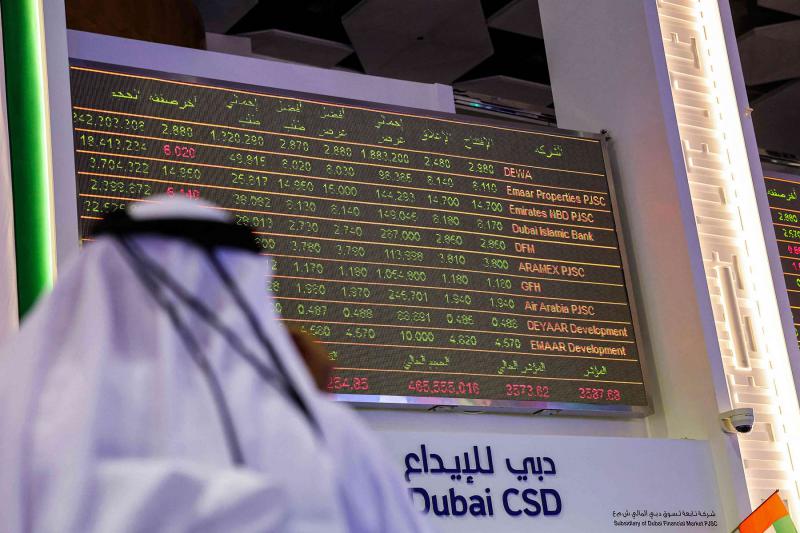
The IPO boom in the UAE is poised to reshape the country’s economic landscape and propel it as a global investment destination.
The positioning of the United Arab Emirates (UAE) as a global economic powerhouse by the government through economic diversification and government investment has ensured that the country experiences strong economic growth despite global slowdowns. With a prime focus on economic diversification, the country has seen increased investment in sectors such as tourism, real estate, logistics, financial services and technology-related markets.
Several attractive tax initiatives have drawn young entrepreneurs across the world to make the country their base for business operations, turning the UAE into a regional and global leader in investments in private and public companies. Given the dynamics of the economic landscape, the UAE has emerged as a prominent destination for initial public offerings (IPOs), which reflects the country’s commitment to fostering a robust capital market and attracting global investment.
It is pertinent to analyze the yearly surge in the value of IPOs in the UAE. In 2008, the UAE saw in total six IPOs of a total value of close to a billion dollars. In 2022, the UAE from its 11 issuances saw proceeds of around $ 13.96 billion.
In 2023, UAE firms raised $ 6.07 billion from the eight IPOs that were listed. Although this was a decline from the previous year, the UAE was the most dominant among the GCC countries as this accounted for 56.3 percent of the region’s total issuance proceeds.
In 2024, the Abu Dhabi Stock Exchange may expect listings of private companies including Lulu Group, Spinneys Dubai, Dubai Parkin and Advanced Inhalation Rituals.
- Factors behind the surge
The notable increase in the IPOs in the UAE can be attributed to various factors, including the government’s focus on diversification, political stability, financial regulatory reforms and the UAE’s strategic location and position as a global and financial business hub. The IPOs in the UAE have attracted substantial interest from both the retail and institutional investors, resulting in multifold over-subscription and reflecting the region’s growing investor appetite for the emerging growth opportunities.
The UAE’s adoption of international standards in respect of regulatory and market frameworks has helped it to witness massive investments from across the world. Further initiating favourable tax and economic policies has helped the country create a stable business landscape for entrepreneurs and established businesses. Initiatives like Dubai free zones and favourable taxation for foreign investors have led to the UAE accounting for over 30 percent of the foreign direct investment inflow to the MENA region.
The IPO eligibility rules in the UAE only allow profitable entities to be listed on the stock exchange. For onshore companies, the Security and Commodities Authority (SCA) requires the business to show a net operational profit of at least ten percent of the company’s capital for the past two years.
For other companies established in the offshore economic free zone, the criteria are to show profitability for the last two years to get listed on the stock exchanges of Dubai International Financial Centre (DIFC) and Abu Dhabi Global Market (ADGM). Unlike the mainland, there are no minimum criteria for profit to get listed. Most of the recent IPO candidates in the UAE have come from these free zones.
It is argued by some that the removal of the profitability requirement may boost the number of IPOs as several tech corporations in their initial phases are more focused on growth than on profitability. Companies such as Google, valued stocks today, were unprofitable for years. The criteria of minimum profitability for IPOs denies such technology companies investment opportunities through IPOs.
- Transparency with growth
The UAE law also enforces several stringent post-IPO regulations. These involve accelerated financial reporting timelines wherein listed companies must disclose their quarterly earnings within 45 days following the end of the reporting period and must report audited financial statements within 90 days from the end of the financial year. Any delay in meeting deadlines may result in a damaging reputation and suspension of the share trading license.
Further, the listed companies must rotate their auditors in line with the SCA rotation rules wherein audit engagement partners have to be changed every three years and the audit firm is to be rotated every six years.
These rules are being enforced to bolster transparency and accountability, as well as to promote independence and objectivity in the UAE’s finance market. With the country positioned as a hub of innovation, the continuous expansion of the IPO market requires the UAE to fortify its reputation globally, wherein the finance teams of these companies are being asked to be more strategic, digital and investor-friendly.
The surge in IPOs in the UAE mirrors the country’s evolution into a dynamic financial hub driven by a range of factors, including economic diversification efforts, regulatory reforms and technological advances. As companies seize the opportunity to access public markets and investors capitalize on the region’s growth potential, the IPO boom in the UAE is poised to reshape the country’s economic landscape and propel it as a global investment destination.
Written By: Thomas Paoletti
Published on: The Arab Weekly
